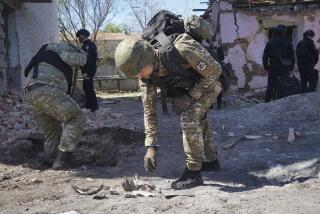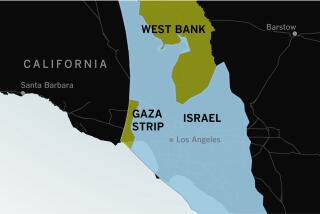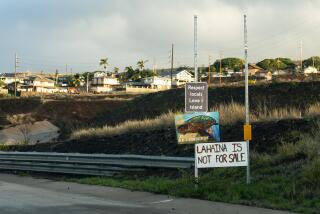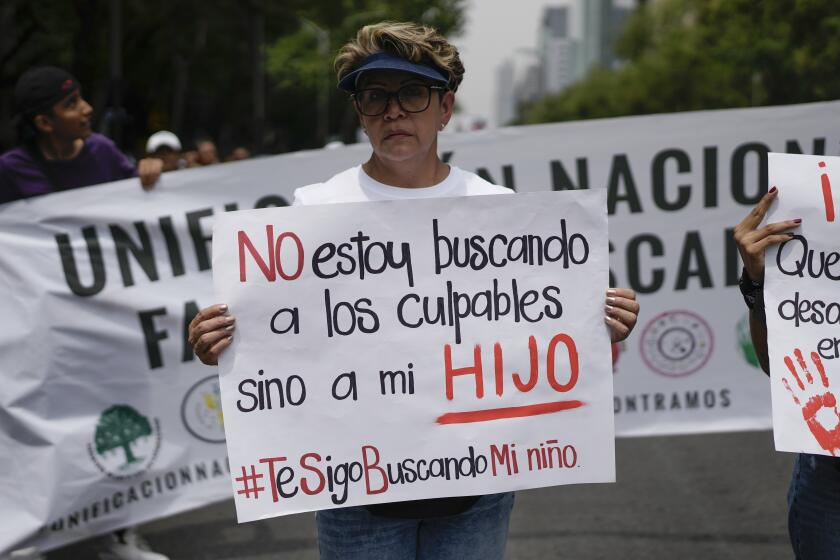Police’s New Role Has Big Price Tag
Sept. 11 redefined urban policing in America. Before then, cops protected city dwellers from domestic wrongdoers. Today in New York, Los Angeles, Chicago, Philadelphia and other big population centers, they are on the front line against foreign terrorists. Certainly, dams, nuclear power plants and other major infrastructure in rural areas are inviting targets for terrorists. But every big city now has to consider itself a potential target and to use its police accordingly. This has profound implications for urban cops and for the cities that employ them.
The recently booming economy made it difficult for cities to recruit enough cops. Consequently, most big-city departments had to juggle resources to deal with murderers, thieves and drug dealers. Now, new national priorities have stretched urban police capabilities and budgets to the breaking points. Every airport, railroad or bus terminal; every baseball, football or basketball game; every rock concert; every parade or public gathering; every bridge or tunnel--all demand the highest levels of security.
This costs, sometimes in lives. In Philadelphia, the police have had to reassign officers from drug-law enforcement to terrorist watch. Last month, after two years of fairly steady decline, drug-related homicides in the city spiked. It was no coincidence: The higher number reflected an increase in revenge homicides. Before Sept. 11, Philadelphia cops were immediately assigned to neighborhoods where a drug-related murder had occurred to prevent tit-for-tat killing. In October, those same cops were doing anti-terrorist duty.
In New York City, which suffered the most in lost human life and property damage from the Sept. 11 attacks, crime rates have not increased. Walking around the city reminded me of the fabled 1965 blackout, when I was a Brooklyn cop and when New Yorkers surprised everybody--including themselves--by helping, rather than exploiting, each other. A similar sense of community exists there today, which has enabled many officers normally assigned to the city’s roughest neighborhoods to help with the clean-up effort at the World Trade Center or to guard potential targets when terrorist-attack warnings are issued. As a result, in midtown and downtown Manhattan, cops are everywhere.
The bill for this is enormous. The New York Police Department will spend $1.5 billion on overtime pay this year. Because New York cops’ pensions are based on earnings in their last year of service, it will cost plenty more in years to come. The department hired more than 4,800 cops in 1981 and 1982, and the 4,000 or more members of those classes who are still on the job become eligible to retire this year and next. How can they afford not to retire when this year’s overtime will swell their pensions so greatly? How will the city replace them, or the 15,000 or more cops eligible to retire over the next five years?
The new national-security tasks of big-city police officers come at a particularly inopportune time. The last few years have shown that quick police identification of and response to crime patterns can make a big difference. Still, the most sophisticated police have long known that their influence on crime rates is far smaller than that of the number of high-school and college-age kids in the population. Young adults--16-to 24-year-olds--first showed how much they drove crime and violence in the 1960s, when the postwar baby-boom generation came of age: Rates soared. Over the last decade, they have been a small part of the population, and crime has correspondingly dropped. The police’s new computer-based strategies certainly helped augment the falloff.
But children of the baby boomers are just now hitting adolescence, and, not surprisingly, violent-crime rates have recently turned up in many cities. Murders in Boston and Cincinnati have doubled over the last couple of years; there have also been sharp recent increases in L.A., Las Vegas, New Orleans, Oakland, Pittsburgh and San Antonio. This trend, I’m afraid, is just a hint of what lies ahead.
The war against terrorism, the sagging economy--aggravated by a shrinkage in municipal revenues because tourists are staying out of cities because of terrorist anxieties--and the likelihood of increasing rates of traditional crime will make the coming years tough for big cities and their police forces. It doesn’t seem that federal law enforcement will be helping much, either. The FBI, which has long treated local cops like poor, dumb and untrustworthy cousins, has been criticized by state and local police for not sharing information with them. The agency has promised to change, but has begun its new, more open relationship with local cops by giving them the names of 5,000 men the Justice Department wants rounded up for interviews. It’s a good bet this was not the kind of change local police had in mind, who now have to figure out how to divert officers to this task and, apparently, to find the money to pay for it.
Over the next several years, urban police departments will also be providing special training on terrorism to everybody in their agencies--new recruits, in-service officers, supervisors and commanders. They will be creating anti-terrorism units and developing intelligence on suspected terrorists. This, too, will sap their budgets and take officers off foot and patrol-car beats.
New York had been led to believe that much of the money it needed in the aftermath of the Sept. 11 attacks would be coming from the federal government. In the days immediately after the World Trade Center tragedy, the Bush administration pledged $20 billion in aid. Since then, Washington has delivered only $9 billion, with the rest on indefinite hold. Not a good sign for New York and for other big cities that seem destined to bear a disproportionate, and perhaps back-breaking share of the costs for the war against terrorism.
It may seem crass to talk about money at times like these, but the new relationship that the terrorist attacks have imposed on the federal government and our cities and their police departments requires nothing less. L.A., Chicago, Philadelphia, Houston, San Diego and other large cities must do their share to defend themselves. But Washington must recognize that it cannot stick them with the bill for what is a national-security matter. This will require more financial help than we have seen so far.
More to Read
Start your day right
Sign up for Essential California for news, features and recommendations from the L.A. Times and beyond in your inbox six days a week.
You may occasionally receive promotional content from the Los Angeles Times.






